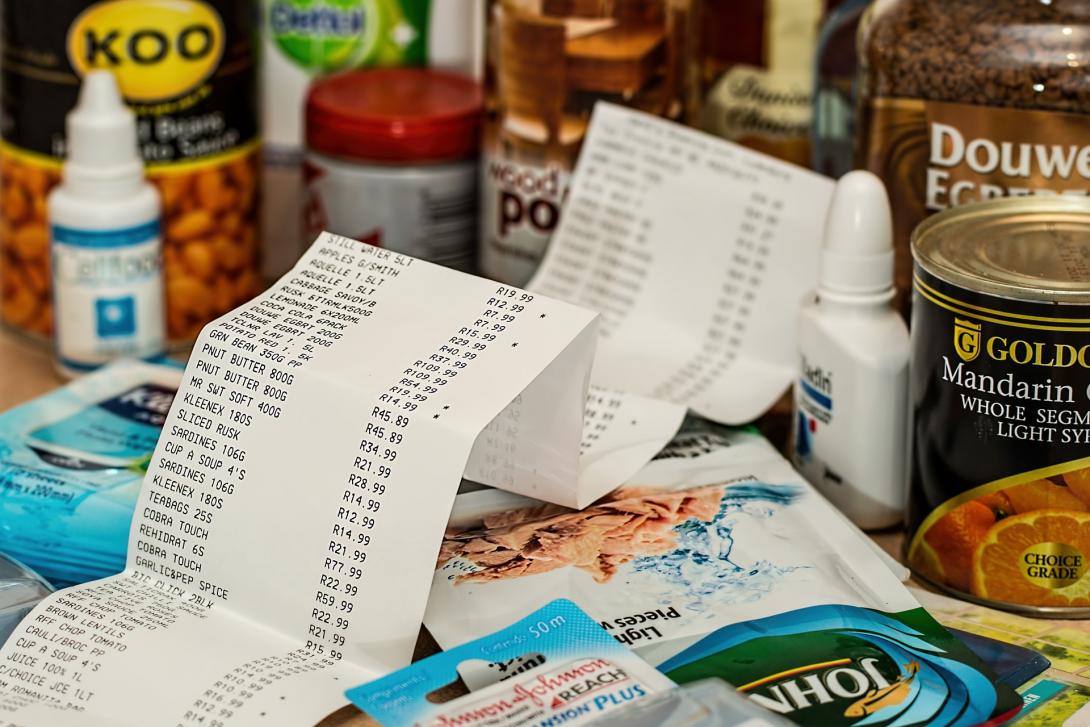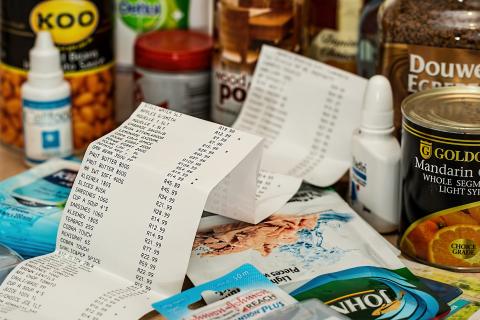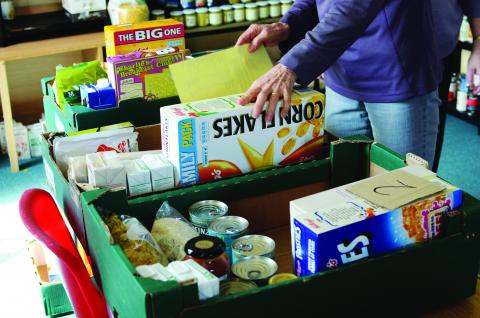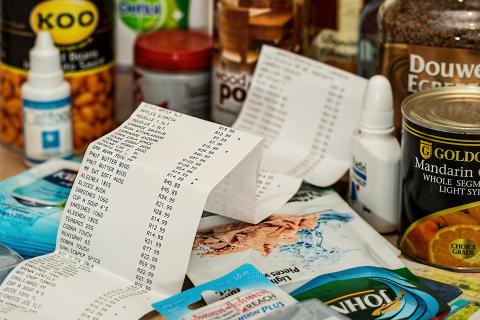17 August 2023
Food Prices Tracker: August 2023

By Josh Day
Food inflation hits 14.9% according to Government data.
Data released today from the Office of National Statistics finds that overall inflation has dropped further to 6.8% (CPI) in the 12 months to July 2023. Food inflation remains considerably higher than overall inflation but has decreased quite substantially to 14.9% from 17.4% (CPIH) last month. Although inflation is falling, food prices are expected to remain high. Huw Pill, Chief Economist for The Bank of England, stated that “Unfortunately, the days of seeing food prices fall, that does seem to be something that we may not be seeing for a little while yet, if in the future at all".
The cost of The Food Foundation’s Basic Basket has increased by 22-28%.
Food prices do appearing to be stabilising with prices increasing more slowly but still remain high, a finding reflected by The Food Foundation’s Basic Basket Tracker. This shopping basket tracker measures weekly price changes in what the average man and woman could typically eat as part of a reasonably costed, adequately nutritious diet (see FAQs for further details). Since we began tracking in April 2022, the woman’s basket of food has increased in price by 22.3%, now costing £48.87 per week. The man’s basket has increased by 27.7% and currently costs £54.30 per week.
Recent global and domestic events fuel concerns about food prices
Recent developments in the Ukraine War have reignited fears that global food prices will rise once again. In 2022, global food prices soared in part as a result of Russia's invasion of Ukraine as Ukraine is a major exporter of wheat, vegetable oil and fertiliser. The conflict has been causing ongoing disruption of agricultural production across Ukraine and Russia, affecting the available supply of food, and pushing up prices. Furthermore, we recently saw the collapse of the Black Sea Deal, which allowed for exports to leave Ukraine’s southern ports. The Black Sea Grain Deal was negotiated in July 2022 to ensure that Ukraine could continue to export grains such as wheat. The deal had been highly successful and led to decreasing global prices from the highs that were seen before the agreement was negotiated. Russia claimed the west was not honouring the second part of the deal which allowed for greater Russian agricultural exports and exports began to decrease significantly as Russia slowed down inspections that were being made as part of the deal. Russia declining to renew the deal means that The Black Sea Initiative stopped functioning from the 18th of July. Within weeks of the deal ending, Ukrainian ports began to be bombed which has once again causing concerns that the global food market will be put under threat.
Meanwhile, the Indian government has placed a ban on the export of non-basmati rice in order to help lower prices and secure domestic availability. India is the top exporter of rice in the world, responsible for 40% of the global trade in cereals, and the effects that these restrictions will have on global prices and availability is expected to be significant.
Furthermore, analysis by the Energy and Climate Intelligence Unit suggests that climate change is making hard for countries in the Mediterranean to maintain food supplies. This could result in prices rising in the UK for both fruits and vegetables which will make these increasingly unaffordable for lower income families.
In the UK, farmers have warned that harvests of wheat, oilseed rape, potatoes and other crops have been affected by a cool, wet summer, inducing fears of further food price inflation.
Due to these global and domestic shocks impacting the availability and price of food in the UK, food prices look likely to remain high and volatile for some time. With inflation figures declining the cost-of-living crisis may seem to be drawing to a close but for those on lower incomes the pressures of more expensive food bills mean that many are likely to continue struggling to afford a healthy diet.

Josh joined The Food Foundation in 2023 as part of the Rank Foundation’s Time to Shine scheme. He completed a BA in Film Studies before continuing to study an MA in Culture and Critical Theory. Before moving to The Food Foundation Josh worked in a variety of roles in a primary school setting, utilising his experience to support the most vulnerable and disadvantaged members of the school community. Josh is interested in the impact that food systems and environments have on people's lives and is driven by a desire to ensure people have better access to a healthy and nutritious diet.

Shona joined The Food Foundation as a Project Officer in 2019 and has worked on research, policy and advocacy across a range of projects over that time including leading our food insecurity surveys and flagship annual Broken Plate reports. She now works across the charity's policy portfolio including our children's food campaigns, food insecurity and food environments. She is a Registered Associate Nutritionist with a background in clinical nutrition who worked in dietetic departments in NHS hospitals before joining The Food Foundation.

Indu joined The Food Foundation in 2019 as part of the Rank Foundation’s Time to Shine scheme, moving into a Project Officer role in 2020. She works on the Peas Please and Plating up Progress projects. Prior to joining The Food Foundation, Indu completed a MSc in Public Health and a BSc in Human Nutrition. She is interested in reducing health inequalities, children’s health and wellbeing, and sustainable and nutritious food system/diets. Indu is also a lover of veg, having recently taken up urban gardening.





